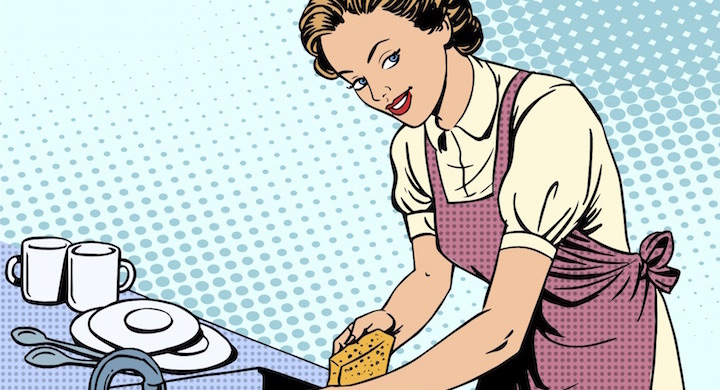Social justice is cool.
Talking about loving the poor and oppressed is super cool.
Maybe you’ve got a shelf FULL of the latest books by social justice crusaders. Maybe you’ve been to The Justice Conference. Maybe you’ve shared that Francis Chan video on Facebook – or Tony Campolo or Shane Claiborne – and spoken a silent Yes! – that guy is speaking my language. Click like. Retweet.
Me too.
But honestly, the daily grind of loving my impoverished neighbors is a LOT less fun and cool.
Everybody wants a revolution. But no-one wants to do the dishes.
Frankly, I love the idea of justice much more than the practice.
Or as Mother Teresa puts it, “Today, it is fashionable to talk about the poor. Unfortunately, it is not so fashionable to talk with them.”
I’m convinced this is why we tend to ROMANTICIZE poor people who are geographically distant – those living in a war-torn African nation, or folks in an Asian slum – while we DEMONIZE the very poorest on our own doorsteps.
It’s a clever mental strategy for keeping them at arms length, while maintaining our identity as someone who cares about justice.
I’m back in Vancouver’s notorious Downtown Eastside for a few weeks. It’s Canada’s poorest postal code and it’s the place I called home for 6 years. The UN describes this neighborhood as “a two-kilometre square stretch of decaying rooming houses, seedy strip bars and shady pawn shops.”
It’s the kind of edgy place that youth groups come for short term mission trips during Spring Break. But doing justice takes more than a few days. It takes a lifetime commitment to costly and boring, ordinary love.
It means taking up your cross daily.
We started an intentional Christian community here in inner city Vancouver almost a decade ago, and there are folks in the neighborhood who have been living here a lot longer than that. Their faithfulness, their stability, their rootedness is a beautiful testimony and challenge to me.
When we started opening up our home here for homeless friends to come for dinner, we wanted to be more than a soup kitchen or service provider. We wanted to be a community where people experience Jesus in everyday life together.
Jesus with skin on.
So, each night we invited folks to sit around the dinner table with these simple words: “If this is your first time here, welcome! You’re our guest. Sit back and relax. If this is your second time here welcome! You’re part of the family. And that means you have the privilege of helping with the clean up afterwards.”
After dinner, one of the kids would pull out a bunch of Popsicle sticks – each stick lovingly tagged with one of the many chores that would transform the kitchen and dining room back into spic and span condition.
If you were lucky you might get “stack chairs” – a simple 5 minute exercise.
The ones everyone avoided were “wash dishes” and “dry dishes”. With up to 30 people eating, the dishes could take a while. So some genius added “wash dishes 2” and “dry dishes 2” – the sequels. Sequels are never as good as the original but those original dishwashers sure appreciated the tap on the shoulder of someone willing to take over halfway through.
I’ll let you in on a little secret. We never shared it widely because we knew the Popsicle Game was fragile. But here’s the secret: our dishwasher has been in fine working order all these years.
We chose not to use it because we figured there’s something good and real about washing up together. It may not be a street protest. It may not be a war-torn refugee camp. But it’s real life.
Wherever two or three people gather in the name of soap suds and clean dishes, there is community in the midst.
There is Jesus, who figured that coming down and hanging out with us in the flesh was the best way to show his love.
So there we are – grappling with a soaking tea towel. Trying to wipe the suds off a million plates. And all the while, carrying on a conversation about nothing and everything. That’s about as radical as it gets around here.
There is something you find in the kitchen, around the dinner table, and the shared cleaning up afterwards that you won’t find in a soup kitchen or a food line. You find family.
Everybody wants a revolution. But no-one wants to do the dishes.
But maybe we can change that one Popsicle stick at a time.

